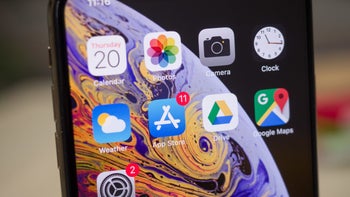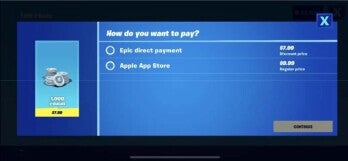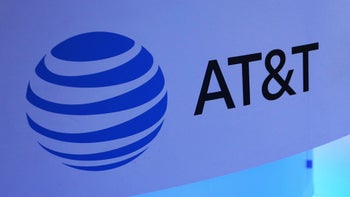Apple, Epic Games to continue their legal war in Appeals Court tomorrow

The legal battle between Apple and Fortnite developer Epic Games continues on Monday. Oral arguments will be made before a three-judge panel sitting on the Ninth Circuit Court of Appeals. The original ruling on the case was made in September 2021 when Judge Yvonne Gonzalez Rogers ruled that Apple could not be forced to include the Epic App Store on the iPhone. The judge also ruled that the success of the Apple Store "is not illegal."
What Judge Gonzalez Rogers did rule was that Apple would have to allow developers to allow their apps to redirect to third-party payment platforms that would allow App Store customers to avoid using Apple's in-app payment platform. Many developers are upset that Apple takes 15%-30% of in-app payments made through its platform. In August 2020, Apple removed the popular Epic game Fortnite from the App Store after the developer added a link to its own in-app payment platform inside the game violating Apple's policies.
If taken to the Supreme Court, a final ruling might not materialize until as late as 2025
Don't expect a quick ruling by the Appeals Court. According to the Associated Press (AP), the appeals court might take six months to as long as a year to release its ruling. And the losing side could decide to take the battle all the way to the Supreme Court. If that occurs, this case could remain active through 2024 or even 2025.

Fortnite was kicked out of the App Store afte
The reason why this issue is so important to Apple is that it is all about money. Some analysts estimate that the Cupertino-based tech giant brings in $15 billion to $20 billion every year from its cut of App Store in-app revenue. Apple has always maintained that it uses this money to help defray the costs of technology used for Apple's iOS app storefront to make it safe and easy to use.
Tomorrow, the three judges hearing the oral arguments, Sidney R. Thomas, Milan D. Smith Jr., and Michael J. McShane, will first listen to Epic attorney Thomas Goldstein. The AP suggests that Goldstein will try to convince the panel that Judge Gonzalez Rodriguez erred when she looked at the App Store and Apple's in-app payment platform as separate markets instead of bundling them together.
The Justice Department will also try to convince the court that Judge Gonzalez Rodriguez too narrowly interpreted the federal antitrust law which could impact future action against anti-competitive behavior in the tech market. Although the DOJ isn’t taking sides, its arguments might help Epic show the three judges that they should overturn the lower court decision.
Another lawyer, this one from the California Attorney General’s office, is expected to defend the law cited by Judge Gonzalez Rodriguez that allowed her to rule that Apple needs to allow developers to redirect apps to third-party payment platforms.
Ironically, Epic CEO Tim Sweeney uses an Apple iPhone
Apple's Mark Perry will present the final argument allowing him to give Apple's perspective on some of the questions that the other lawyers will be asked by the judges during the afternoon. Most legal experts believe that Perry will simply ape the same presentation that Apple made before the lower court 14 months ago.
During that trial, Apple CEO Tim Cook testified and said that it would be bad to allow developers to bypass Apple's in-app payment platform. The executive said that this would weaken the security and privacy that consumers who buy an iPhone instead of an Android device expect. During his testimony, Cook said that forcing Apple to redirect App Store users to third-party in-app payment platforms would create "a toxic kind of mess."
As for Epic's CEO, Tim Sweeney admits that he owns and uses an Apple iPhone mostly due to its privacy and security features. Some of those features have been tarnished by a lawsuit that claims the iPhone still tracks users even when privacy settings are set to prevent users from getting tracked.












Things that are NOT allowed: